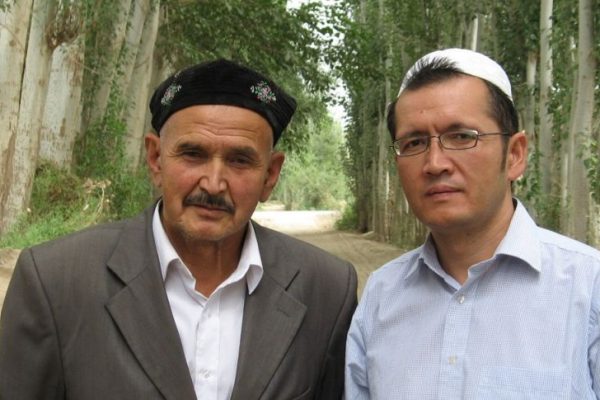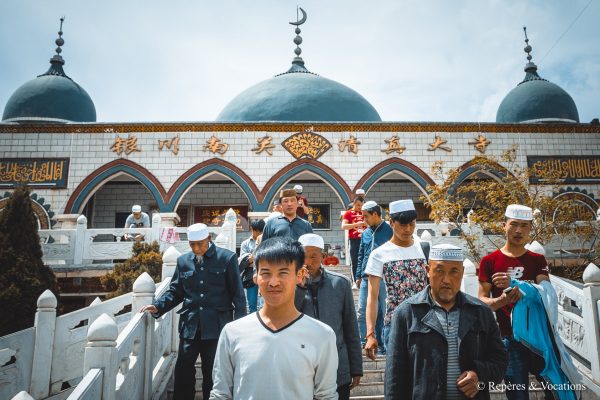Xinjiang is today essentially a well-funded police state in which the Chinese government uses advanced technology, propaganda, and fear of imprisonment to control the actions and thoughts of the Uighurs.
Xinjiang is today essentially a well-funded police state in which the Chinese government uses advanced technology, propaganda, and fear of imprisonment to control the actions and thoughts of the Uighurs.
Previously it was said that China is a sleeping giant. Let her sleep, for when she wakes she will move the world, and we get to be in the age that witnesses the wake of China. Ever since China’s gradual shift to a more market-based economy from 1978, it has experienced huge economic and social development. GDP growth has averaged nearly 10% a year, and more than 850 million people have risen above the poverty line. China touched down on all the Millennium Development Goals (MDGs) by 2015, and contributed greatly to the global success of MDGs.
With a population of 1.4 billion, China is the world’s second largest economy, second only to the US with more than 12 trillion dollars. In addition, there is a mutual consensus that China has the largest active military in the world. It has been increasing its annual defence spending by double digit percentages year after year. China has become one of the most dominant regional powers, and is a permanent member of the United Nations Security Council.
With all the glory the world has witnessed China achieve over the couple of years, there has been a darker side to all this expansion the world has for so long been oblivious to. In western China a large minority are silenced as they continue to be brutally subjugated by the state. Extreme surveillance, accounts of torture, and the detention of up to a million Uighurs are all part of what seems to be China’s attempt at eradicating the Uighur identity from its borders. Descendants of Turkic peoples, the Uighurs are part European and part Central Asian. They inhabit Xinjiang, or East Turkestan as it was historically known. It’s a beautiful culture that China exploits to boost tourism while also suppressing the people who come from it.
The Uighurs follow mainly Sunni Islam, and many have called for independence from China. China has been trying to change this for decades. Back in 1949, Mao Zedong’s Communist Party took control of China, and after a deadly five-year civil war immediately invaded the disputed region of Xinjiang to prevent Russia from taking over it. Religion was considered incompatible with Communism, and so a crackdown quickly began on all expressions of faith. Uighurs were punished for praying in public and found their mosques demolished or used for other purposes.
With the help of government money, China’s dominant Han ethnicity began to migrate to the region in the 1950s. They built settlements and set up the most successful businesses in Xinjiang. The Han now make up about 39% of the population, which is steadily increasing. Poorer Han across China routinely move west to work for the Bingtuan; a paramilitary group that takes over land and resources from Uighurs by the government, established in 1954 by Mao to defend Xinjiang from Russia. However, as Russia became less of a threat, the organization only grew instead.
The Bingtuan administrative divisions enforce the government’s anti-Uighur policies whilst they profit from their annexed land and resources. Xinjiang is extremely rich in fossil fuels. These are transported to China’s manufacturing hubs. It’s a multi-billion dollar process where everyone benefits except the Uighurs, who are excluded from many employment opportunities and in some areas make only 12 dollars a month. This oppression and discrimination against the Uighurs caused an uproar within.
In the 1980s and 1990s, separatist groups coordinated unsuccessful revolts against China. More recently in 2009 over 200 people were killed in riots in the capital of Urumqi. And in 2017, three knife wielding attackers killed 5 people in Guma, southern Xinjiang. The government now stuck QR codes on the front doors of the Uighur homes and all household tools that could be used as weapons including knives. A handful of Uighurs have also been recruited by violent groups like Al-Qaeda, giving China a chance to justify their actions against them as ‘fighting terrorism’.
But the authorities are keeping the Uighurs under strict surveillance and treating any expression of Uighur identity as part of what they call the ‘three evils’: Separatism, Terrorism, and Religious Extremism. Uighur women have been banned from wearing a headscarf and young men are not allowed to grow long beards, fasting is prohibited, certain Islamic names for newborns are banned, parents are forbidden from providing their own children with an Islamic and Uighur education, youth under 18 are not allowed in mosques during sermons, and the Quran itself must be approved by the state, meaning that the text is altered to fit the Communist Party’s ideology. The Hajj pilgrimage is also not permitted as there is currently a restricted freedom of movement. Many passports were seized in 2016 when Communist party official Chen Quanguo was given authority over Xinjiang.
Xinjiang is today essentially a well-funded police state in which the Chinese government uses advanced technology, propaganda, and fear of imprisonment to control the actions and thoughts of the Uighurs. The Uighurs that are found to be “not safe” are sent to prison or to “re-education camps”. Human rights groups report that there are over a million Uighurs in these internment camps. People put here are accused of extreme behaviors such as marrying in a religious ceremony, refusing to watch state television, or even a slight change in routine such as purchasing more food than usual. They are not charged with any crime and cannot meet with lawyers.
Sessions in the camps include praising president Xi Jinping, studying communist propaganda, and criticizing their own Uighur language, culture and religion. The lights reportedly remain on 24/7, while Uighurs are kept in overcrowded rooms, given very little food, and forced to march in their cells while thanking the Communist Party. They are even forced to take re-education tests, which, if failed, lead to torture and possible death. Other than this, it is reported that China for so many years has been harvesting the organs (hearts, kidneys, lungs and skin) of the religious minorities of the Uighurs and the Falun Gong religious group.
China’s extreme and violent behavior in Xinjiang towards Uighur Muslims leads to the violation of human rights. According to the United Nations Declaration of Human Rights, Articles 1, 2, 3, 5, 6, 7, 8, 9, 12, 13(1 and 2), 16, 18, 19, 20, 22, 24, 25 etc. are just a few of the many being violated by China. Some of the main articles state that every individual has a right to freedom, life, security, liberty, and recognition; right to freedom of thought, conscience and religion; the right to education; and that no one should be tortured or subjected to any sort of cruel, inhuman, or degrading punishment or treatment.
But according to WikiLeaks, China successfully lobbied Saudi Arabia, Egypt and others to prevent them from releasing statements on the treatment of Uighurs after the Urumqi riots in 2009. That may explain the lack of global condemnation. However this global silence may have an economic reason as well. China is in the preliminary stages of the multi-trillion dollar Belt and Road initiative. It’s an ambitious infrastructure project that spans over 50 countries and aims to make it easy for the world to trade with China, mostly through Xinjiang, the home of the Uighurs. China could be indirectly buying the silence of many of these nations. The countries involved will receive loans in the millions of dollars to develop structures, roads, railways and pipelines. This may be enough to make them turn a blind eye to the Uighurs.
After so many years, China’s violent behavior towards the Uighurs have not changed and instead only grown, forcing the Muslims to eat pork or drink wine, and using different ways to brainwash the Muslim minority. This is another holocaust that no one is talking about. Buying the silence of the world gives China acceptance to continue this ethnic oppression and oblivion of the Muslim world to the agonies of the world is a devastating blow for humanity.
Sources:
- “China sentences three more to death over Xinjiang riots,” The Guardian, 2009.
- John Ruwitch, “Knife-wielding attackers kill five in China’s Xinjiang: govt,” Reuters, 2017.
- Alexandra Ma, “China is reportedly tracking ethnic minorities by sticking QR codes with their personal information on their front doors,” Business Insider, 2018.
- “China Uighurs: Ban on long beards, veils in Xinjiang,” Al Jazeera, 2017.
- “China confiscates passports of Xinjiang people,” BBC News, 2016.
- Stephanie Nebehay, “U.N. says it has credible reports that China holds million Uighurs in secret camps,” Reuters, 2018.
- Gulnaz Uighur, “Muslim world must unite to help China’s Uighurs,” Middle East Eye, 2018.
- ANI, “China harvesting organs from minorities, including Uighur Muslims: Activists tell UN,” The Economic Times, accessed November 28, 2019.
- “XINJIANG: CHINA REPORTEDLY DEFEATED OIC STATEMENT ON UIGHURS, SEEKING OBSERVERSHIP,” WikiLeaks, 2009.





